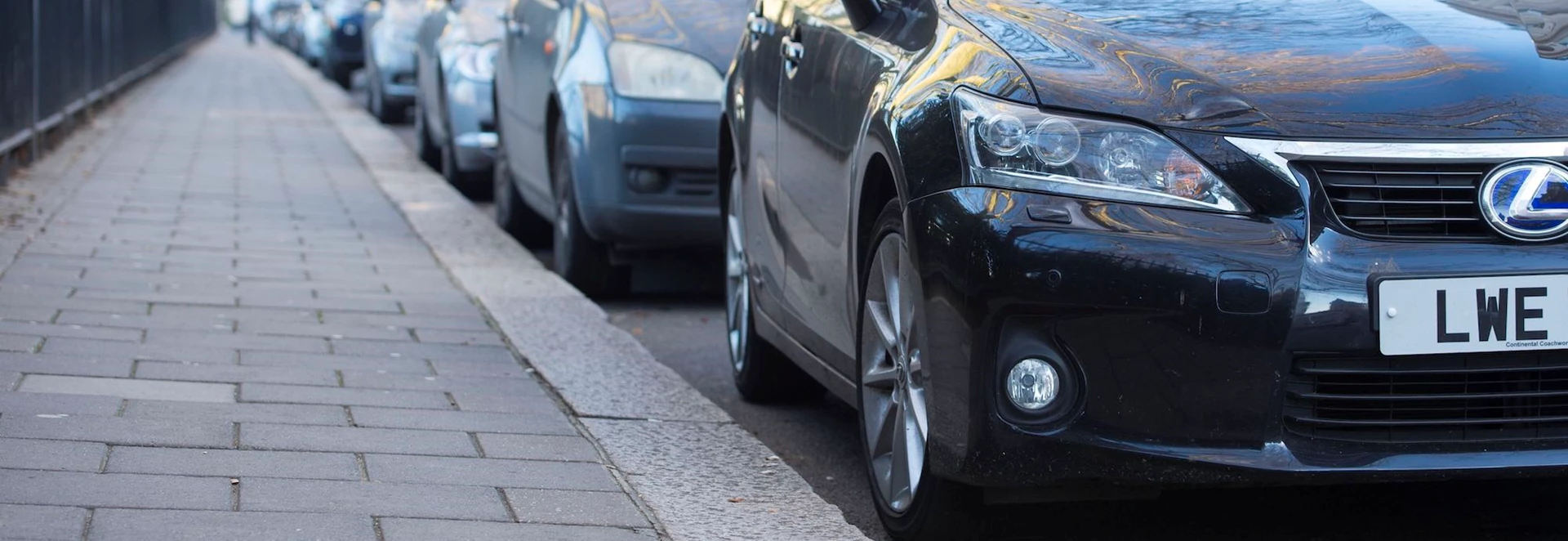Drivers could soon face fines for parking their cars on the pavement after lawmakers in Scotland passed a bill to make parking part on the footpath illegal.
The move follows a draft proposal for the whole of the UK to do the same, but the subject is a thorny one with two very clear arguments.
If you want to avoid accidentally picking up a £70 parking fine, then here’s all you need to know…
Stay up to date on latest car laws and other car news - Subscribe to our newsletter

What’s wrong with parking on the pavement?
The Highway Code is quite clear about pavement parking. Rule 244 says “You MUST NOT park partially or wholly on the pavement in London, and should not do so elsewhere unless signs permit it.
“Parking on the pavement can obstruct and seriously inconvenience pedestrians, people in wheelchairs or with visual impairments and people with prams or pushchairs.”
In theory this is a perfectly fair argument, but in some parts of the UK where roads are quite narrow and were designed before the days of mass car ownership, people park up on the kerb to create space for other road users, as well as to ensure they don’t block fire appliances or ambulances.
What will the penalty be?
With Scotland being the first part of the UK to outlaw pavement parking, the initial penalty will be a £70 fixed fine. The fine will not come with any penalty points.
However, councils will also have the power to remove vehicles that are considered to be causing an obstruction, with the associated storage and release fees.

Will there be exceptions?
The only exceptions will be where there are clearly marked parking bays or signs that say pavement parking is allowed. It’s likely that this will be applies in some streets where pavement parking is the norm, but only on one side of the street to ensure unimpeded access for pedestrians, those with pushchairs and wheelchair users.
How has the ban been received?
Campaigners against pavement parking, such as the pressure group Living Streets, have welcomed the move, citing problems for pushchair, wheelchair and guide dog users as one of the primary reasons why there needs to be a wholesale ban on pavement parking.
Pro-motoring campaigners have taken a more balanced view. RAC head of roads policy Nicholas Lyes said: “Parking is an emotive issue for many drivers, and there is certainly support for local authorities to clamp down on selfish parking where pavement access is blocked for pedestrians and vulnerable users.
“However there are instances, particularly on narrow residential streets, where motorists believe they are doing the right thing by putting a wheel or two on the kerb so not to impede road access for other vehicles while also making sure they leave adequate space for those using the pavement and particularly wheelchair users.
“All eyes will now be on a set of standards and guidance that the Scottish Government will produce for local authorities which we hope will also be clear for motorists to understand. It’s
important that common sense prevails over what is and isn’t acceptable.”





